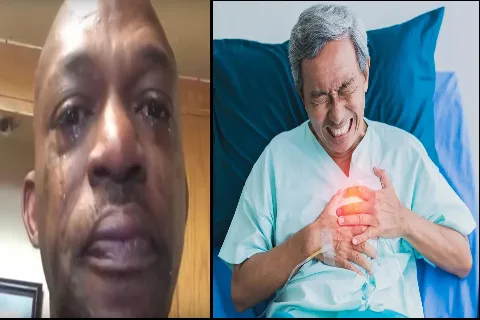They say heartbreak can kill you—but is that literally true? Do you remember the last time you heard a terrible news or had a painful ordeal which was too hard to process or cope? What if i told you inched closer to a broken heart syndrome?
Broken Heart Syndrome (aka takotsubo or stress cardiomyopathy) transforms emotional pain into shocking physical danger. This article cuts through the fluff, peeling back what science really says—and how to deal if it happens to you (or someone you love).
What is Broken Heart Syndrome?

At its core, Broken Heart Syndrome is a temporary weakening of the left side of your heart triggered by intense emotional or physical stress. Imagine grief, a breakup, or even something “good” like surprise news—but your body reacts like it’s under attack. Stress hormones flood your system, “stunning” the heart muscle and making it balloon in that classic octopus-trap shape described by Japanese clinicians smh.com+5my.clevelandclinic.org+5en.wikipedia.org+5en.wikipedia.org.
You might think it’s a heart attack—but routine tests during an attack-like episode show no clogged arteries, and most patients recover fully within days or weeks with proper care .

How Serious Is It—and Can You Die?

Short answer: yes, broken heart syndrome can sometimes be deadly—but that’s rare.
- Studies show mortality rates range from about 0% to 8%, depending on co-occurring illness and patient demographics my.clevelandclinic.org.
- A 2025 analysis of nearly 200,000 U.S. cases found high rates of death and complications from 2016–2020, with men twice as likely to die compared to women ahajournals.org+2newsroom.heart.org+2people.com+2.
- While most survivors make full recoveries, up to 22% experience serious complications like heart failure, cardiogenic shock, arrhythmia, or blood clots mayoclinic.org+2pmc.ncbi.nlm.nih.gov+2my.clevelandclinic.org+2.
So yes, its name may sound metaphorical—but the impacts and complications are very real.
Who’s Most at Risk?
- Women over 50, especially those in menopause, are the majority of cases—likely due to estrogen’s protective role .
- People with anxiety, depression, neurological diseases, or chronic stress are also at increased risk mayoclinic.org+15my.clevelandclinic.org+15news.harvard.edu+15.
- Men get fewer cases, but face higher mortality rates when they do—possibly due to less emotional support or more extreme stressors .
What Triggers It?
About 70–80% of cases follow a major stress event. Possible triggers include:
- Emotional: loss of a loved one, divorce, job loss, betrayal—even “good” surprises like winning the lottery en.wikipedia.org.
- Physical: surgeries, asthma attacks, strokes, seizures, severe illness .
- One-third report no clear cause ncbi.nlm.nih.gov.
New research also suggests that chronic stress and brain patterns—like elevated activity in the amygdala—can prime you to experience this condition later news.harvard.edu.
Symptoms & Diagnosis

Symptoms mimic a heart attack: sudden chest pain, shortness of breath, lightheadedness, and palpitations pmc.ncbi.nlm.nih.gov+4smh.com+4mayoclinic.org+4.
Doctors differentiate the conditions by combining:
- EKG and blood tests (showing stress-related enzyme elevation but not classic heart attack markers)
- Coronary angiography (to confirm arteries are clear)
- Imaging (echocardiogram or MRI – showing stunted, ballooned heart regions) newsroom.heart.org+9mayoclinic.org+9brownhealth.org+9en.wikipedia.org+1people.com+1honorhealth.com+1my.clevelandclinic.org+1.
Treatment & Recovery
There’s no single cure, but standard supportive measures include:
- Medications: aspirin, beta-blockers, ACE inhibitors/ARBs, diuretics if fluid buildup is present my.clevelandclinic.org.
- Monitoring: especially if your heart remains weak or at risk of complications.
- Follow-up imaging after several weeks to confirm heart function is restored .
- Stress management long-term: therapy, mindfulness, exercise—tailored to your situation news.harvard.edu+1verywellmind.com+1.
Most people bounce back within days to weeks, though fatigue can linger for months . However, recurrence occurs in about 4–10% of cases .
Relatable Takeaways
- You’re not weak if your heart breaks—it’s a biological reaction to stress.
- Common triggers include shock, grief, even tax returns, public speaking, or surgery.
- If you experience intense heart symptoms, get emergency care—never assume it’s just stress unitypoint.org.
- Recovery involves medical support and emotional resilience—therapy, meditation, or even regular check-ins with a friend.
Bottom Line
Can broken heart syndrome kill you? Yes—but it’s rare, and it’s very treatable. Your emotional pain is real—and your body can feel it. But with awareness, professional help, and resilience, recovery is absolutely possible. Take care of your mental and physical heart—they’re closer than you think.



